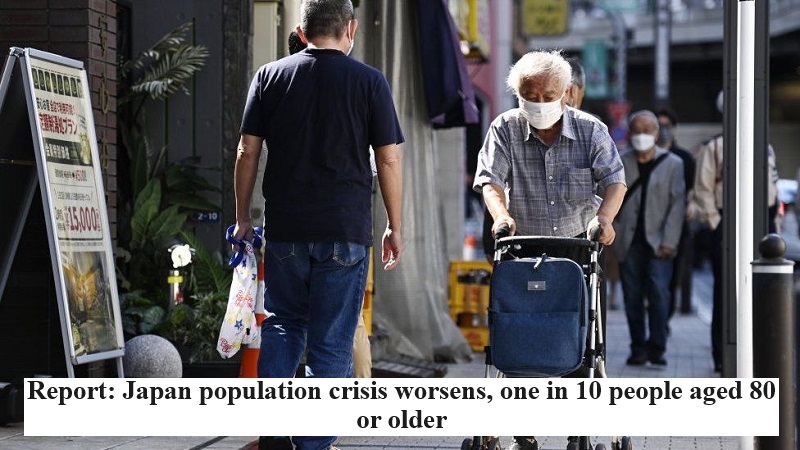
Japan is facing a significant aging challenge, with recent government data indicating that, for the first time, over 10 percent of its population is now aged 80 or older.
The data, released just ahead of “Respect for Aged Day,” underscores the rapid aging of Japan’s population. According to a BBC report referencing United Nations data, Japan currently boasts the world’s most aged population, as measured by the proportion of people aged 65 and above.
A mere year ago, 29.0 percent of Japan’s population fell into the 65 and older category. This year, that number is expected to rise to an all-time high of 29.1 percent among its 125 million inhabitants.
In a press release, Japan’s internal affairs ministry declared the nation to have “the highest percentage of elderly population in the world.” The ministry also revealed that Italy, which ranks second in terms of an older population, has 24.5 percent of its population aged 65 or older. Finland, ranked third, has 23.6 percent in that age group.
The National Institute of Population and Social Security Research predicts that by 2040, approximately 34.8 percent of Japan’s population will be aged 65 or older.
The ministry noted that with the baby boomer generation (born between 1946-1964) now reaching 75 or older, a significant portion of Japan’s population is considered “elderly.” Specifically, around 12.59 million people are aged 80 or older, and 20 million fall into the 75 or older category.
Consequently, Japan increasingly relies on an aging workforce, with more than nine million elderly individuals working, constituting approximately 13.6 percent, or one in seven, of the nation’s labor force. Remarkably, more than a third of people aged 70 to 74 are employed in Japan, according to the data.
Japan has grappled with a declining population for decades, with many individuals postponing marriage and parenthood due to precarious job situations and economic challenges. This demographic shift has driven up elderly care costs significantly. Moreover, Japan has struggled to find a younger workforce to fill job vacancies and support various social and welfare programs.

Post Your Comments